Revisiting Charles Darwin's Philosophical Insights on Evolution
When we think about Charles Darwin, many of us immediately picture the groundbreaking scientist who challenged the traditional views of creation with his theory of evolution. However, his contributions extend far beyond the realm of biology; they delve deep into the philosophical implications of what it means to be alive. Darwin's insights have sparked discussions that resonate through various fields, including ethics, sociology, and even the philosophy of science. So, how exactly did Darwin's theories reshape our understanding of life and existence? Let's dive into the profound impact of his work.
At the heart of Darwin's philosophy is the realization that life is not a static entity but a dynamic process of change and adaptation. This perspective invites us to reconsider our place in the natural world. Are we merely products of chance and circumstances, or do we possess a greater purpose? As we explore the intersection of science and philosophy, we uncover layers of meaning that challenge our conventional beliefs.
Darwin's seminal work, The Origin of Species, is a pivotal text that not only revolutionized biology but also prompted a philosophical awakening. It raised fundamental questions about the nature of existence, the origins of species, and the intricate web of life that surrounds us. The idea that species evolve over time through the process of natural selection forces us to confront uncomfortable truths about our own origins and the randomness that characterizes the evolutionary process.
Throughout this article, we will explore the various dimensions of Darwin's philosophical insights, examining how they have influenced modern thought and sparked debates about ethics, morality, and our relationship with nature. From the implications of natural selection to the role of chance in evolution, we will uncover the layers of complexity that make Darwin's work a cornerstone of both scientific and philosophical inquiry.
As we navigate through these ideas, we will also consider how Darwin's thoughts resonate in contemporary discussions surrounding ethics and human behavior. The philosophical implications of evolution are not just historical; they are alive and relevant in today's world, influencing everything from bioethics to environmental responsibility.
So, buckle up as we embark on this journey through Darwin's philosophical landscape, where science meets ethics, and questions of existence lead us to profound revelations about life itself.
- What is the main idea behind Darwin's theory of evolution?
Darwin's theory of evolution primarily posits that species evolve over time through a process called natural selection, where traits that enhance survival and reproduction become more common in a population. - How did Darwin's work influence modern philosophy?
Darwin's insights challenged traditional views of creation and existence, prompting philosophical discussions about morality, ethics, and our place in the natural world. - What are some ethical considerations arising from evolutionary theory?
Ethical considerations include the implications of survival of the fittest in human society, debates on social Darwinism, and the responsibilities humans have towards the environment. - How does chance play a role in evolution according to Darwin?
Darwin acknowledged that chance events, such as mutations and environmental changes, significantly influence the evolutionary process, raising questions about determinism and free will.
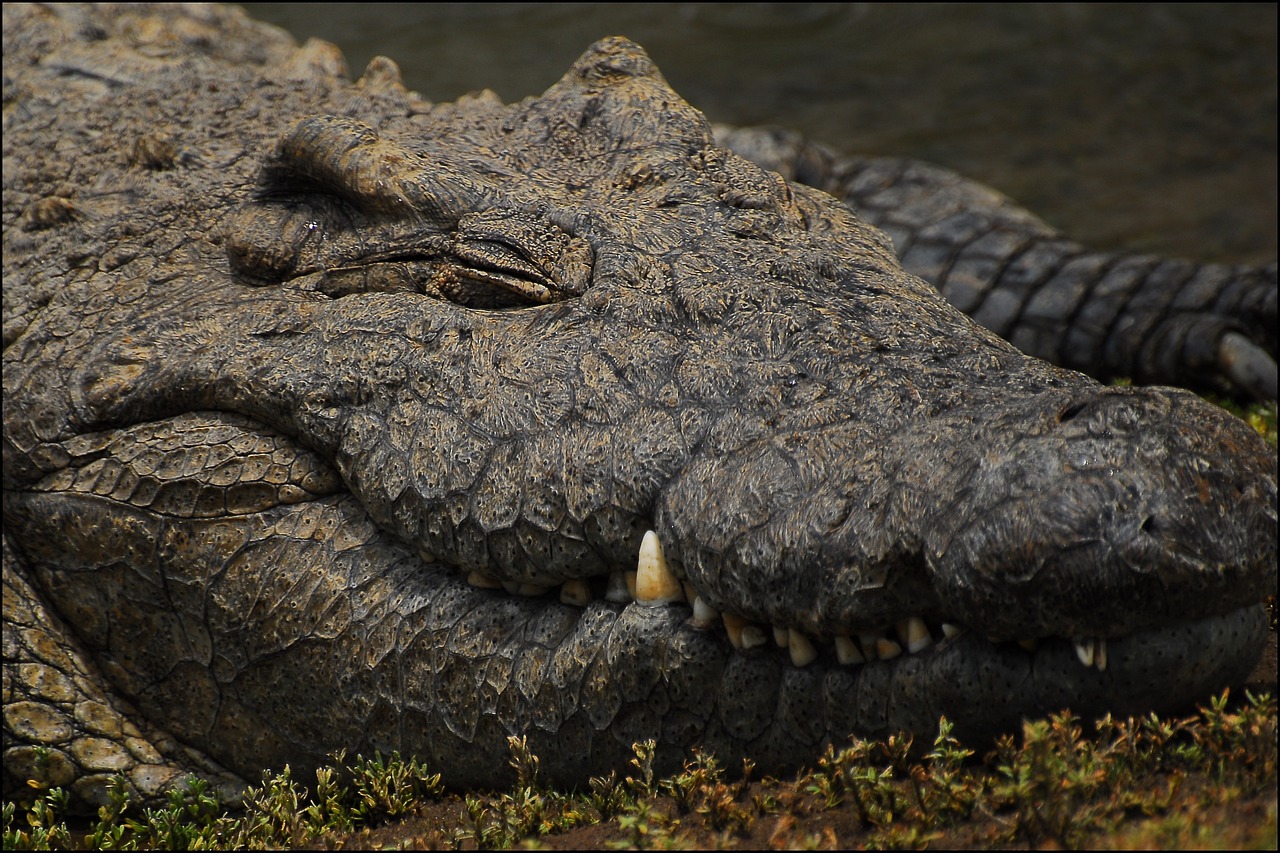
The Origin of Species and Its Philosophical Impact
Darwin's seminal work, The Origin of Species, published in 1859, was nothing short of revolutionary. It didn’t just shake the foundations of biology; it also challenged the very core of philosophical thought regarding the origins of life and existence itself. Imagine a world where the traditional views of creation—rooted in religious doctrine—were suddenly questioned by a scientific perspective that emphasized natural processes over divine intervention. This was the intellectual earthquake that Darwin set in motion.
At its core, The Origin of Species introduced the concept of evolution through natural selection, a mechanism that explained how species adapt and evolve over time. This idea not only provided a framework for understanding biological diversity but also sparked profound discussions about the nature of existence. It forced society to confront questions that had previously been relegated to the realm of theology. For instance, if life evolved through natural processes, what does that say about the role of a creator? Are humans merely the product of random mutations and environmental pressures?
Furthermore, Darwin’s work prompted significant philosophical inquiries into the implications of evolution on ethics, morality, and human purpose. The idea that humans share a common ancestry with other species challenges the notion of human exceptionalism. This led to a reevaluation of our place in the natural world, pushing philosophers to consider whether our ethical frameworks should evolve alongside our understanding of biology. For example, if we are all part of the same evolutionary tree, should we not extend our moral considerations to other species as well?
Darwin's insights didn't just stop at biology and ethics; they permeated various fields, including sociology, psychology, and even politics. The philosophical impact of his work can be summarized in several key areas:
- Challenge to Creationism: Darwin’s theory directly contradicted the literal interpretations of creation found in religious texts, leading to ongoing debates between science and religion.
- Human Nature and Morality: The understanding of evolution forced thinkers to reconsider what it means to be human and how our moral compass is shaped.
- Interconnectedness of Life: Recognizing our shared ancestry with other species has implications for biodiversity conservation and environmental ethics.
In essence, The Origin of Species was more than just a scientific text; it was a catalyst for philosophical exploration. It ignited discussions that continue to resonate today, as we grapple with the implications of our evolutionary past on our present and future. The philosophical ramifications of Darwin's work are profound, challenging us to rethink not only our understanding of life but also our responsibilities within it. As we delve deeper into these discussions, we find ourselves at the intersection of science and philosophy, where the questions are as significant as the answers.
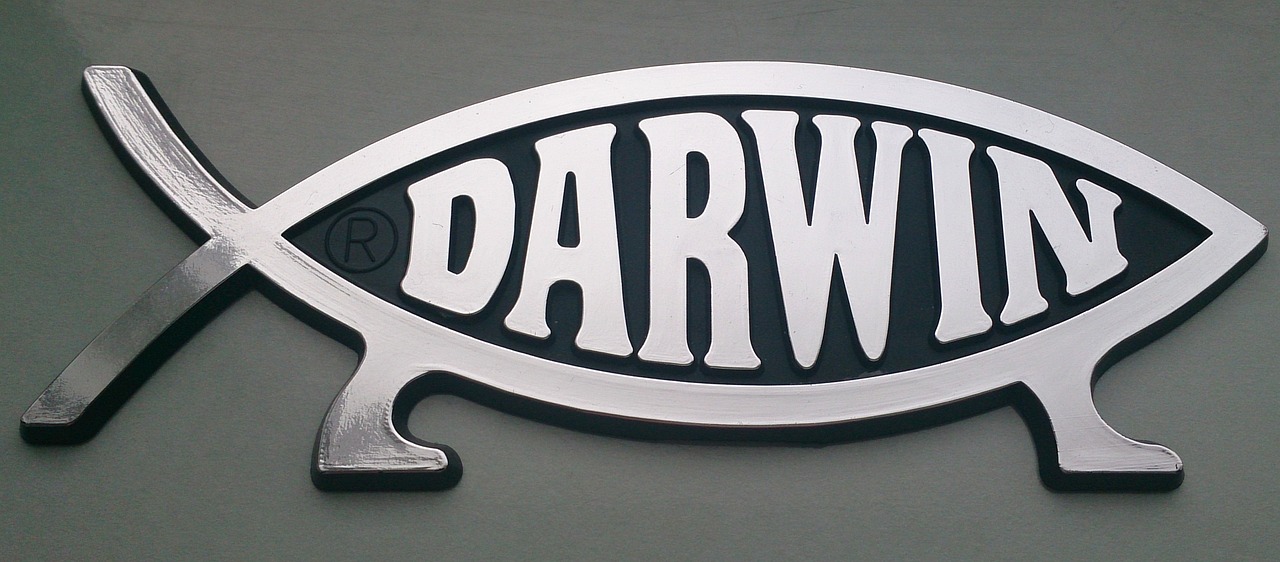
The Origin of Species,
The Origin of Species, published in 1859, is not just a book; it's a revolutionary manifesto that changed the course of biology and philosophy. Before Darwin, the prevailing belief was that species were immutable, created by a divine hand. However, Darwin's meticulous observations during his voyage on the HMS Beagle led him to propose that species evolve over time through a process he termed natural selection. This notion didn't merely challenge the existing scientific paradigms; it opened a Pandora's box of philosophical questions regarding the nature of life itself. What does it mean to exist? Are we merely products of chance, or is there a deeper purpose to our evolution?
Darwin's work sparked intense debates that transcended the scientific community, reaching into the realms of ethics, theology, and social theory. For instance, if species evolve based on their ability to adapt and survive, what does that imply about human society? Are our morals and ethics also products of evolutionary pressures? This line of questioning has profound implications, leading to the exploration of concepts like social Darwinism, which misapplies Darwin's theories to justify social inequality and imperialism.
Moreover, the philosophical impact of The Origin of Species can be seen in its challenge to the idea of a static universe. Instead of a world created once and for all, Darwin presented a dynamic, ever-changing tapestry of life, where the only constant is change itself. This perspective invites us to reconsider our place in the world. Are we the pinnacle of evolution, or just one branch on a sprawling tree of life? The answers to these questions can lead to a more profound understanding of our responsibilities towards other living beings and the environment.
As we delve deeper into Darwin's insights, it's essential to recognize that his theories do not exist in a vacuum. They are interconnected with the broader philosophical inquiries of our time. For example, the implications of natural selection extend into discussions about morality. If survival is the ultimate goal, how do we reconcile this with our ethical obligations to help the vulnerable? This tension between evolutionary theory and moral philosophy continues to provoke thought and debate, making Darwin's work as relevant today as it was over a century ago.
- What is the main idea of The Origin of Species?
The main idea is that species evolve over time through a process known as natural selection, where the traits that enhance survival and reproduction are passed on to future generations. - How did The Origin of Species impact society?
It challenged traditional views on creation, spurred debates on ethics and morality, and influenced various fields, including sociology and psychology. - What are some common misconceptions about Darwin's theories?
Many misinterpret "survival of the fittest" as a justification for social inequality, whereas Darwin's ideas were primarily about biological adaptation, not social policy.

revolutionized biology and philosophy, challenging traditional views on creation and prompting profound discussions about the nature of life and existence.
Darwin's seminal work, The Origin of Species, revolutionized biology and philosophy, challenging traditional views on creation and prompting profound discussions about the nature of life and existence. Before Darwin, the prevailing belief was that species were fixed entities, designed by a divine creator. This notion provided a comforting framework for understanding the world, but it lacked the dynamism to explain the complexities of life. Darwin turned this idea on its head by proposing that species evolve over time through a process of natural selection. This was not just a scientific breakthrough; it was a philosophical awakening that forced humanity to reconsider its place in the universe.
By introducing the concept of evolution, Darwin encouraged a departure from static beliefs towards a more dynamic understanding of life. His ideas sparked debates that transcended biology, extending into ethics, theology, and even politics. For instance, the implications of evolution challenge the notion of a predetermined purpose in life. If species are not created but evolved, what does that say about human purpose? Are we merely the product of random mutations and environmental pressures? These questions invite deep existential reflections that continue to resonate today.
Moreover, Darwin's work prompted a reevaluation of the relationship between humanity and nature. In a world where life is constantly changing, the idea of dominion over nature becomes increasingly problematic. Instead, we are reminded of our interconnectedness with all living beings. This shift in perspective has profound ethical implications, encouraging a sense of responsibility towards the environment and other species. As we navigate the complexities of modern life, Darwin's insights compel us to engage in discussions about sustainability, conservation, and our moral obligations as stewards of the Earth.
In essence, The Origin of Species serves as a catalyst for ongoing philosophical inquiry. It challenges us to confront uncomfortable truths about existence and inspires us to seek deeper understanding. Through Darwin's lens, we are urged to embrace uncertainty and complexity, recognizing that life is a tapestry woven from countless threads of chance, adaptation, and survival.
The concept of natural selection not only explains biological diversity but also raises questions about survival, morality, and the meaning of progress in the natural world.
Often misused in social contexts, the phrase survival of the fittest invites scrutiny regarding its implications for human society and ethics, leading to debates about social Darwinism.
Examining the ethical ramifications of evolutionary theory reveals tensions between scientific understanding and moral philosophy, challenging us to reconsider our values in light of Darwinian insights.
Darwinian principles have influenced contemporary ethical discussions, especially in areas like bioethics and environmental responsibility, prompting a re-evaluation of human relationships with nature.
Darwin's acknowledgment of chance in evolution invites philosophical inquiry into determinism versus free will, challenging our understanding of fate and randomness in the development of life.
Darwin's work has significantly shaped the philosophy of science, particularly in discussions surrounding scientific methodology, hypothesis testing, and the nature of scientific theories.
Darwin's empirical approach to studying nature emphasizes observation and evidence, influencing not only biology but also broader philosophical discussions about knowledge and belief.
Despite its impact, Darwin's philosophy faces critiques from various perspectives, prompting ongoing debates about the limitations of his theories and their implications for understanding life.
- What is the main idea of Darwin's theory of evolution?
Darwin's theory of evolution primarily revolves around the idea that species evolve over time through a process called natural selection, where the traits that enhance survival and reproduction become more common in successive generations. - How did Darwin's work influence philosophy?
Darwin's work challenged traditional views on creation, prompting philosophical discussions about the nature of existence, purpose, and the relationship between humanity and nature. - What are some ethical implications of Darwin's theories?
Darwin's theories raise ethical questions about our responsibilities towards other species and the environment, as well as debates on social Darwinism and the morality of survival of the fittest in human society.
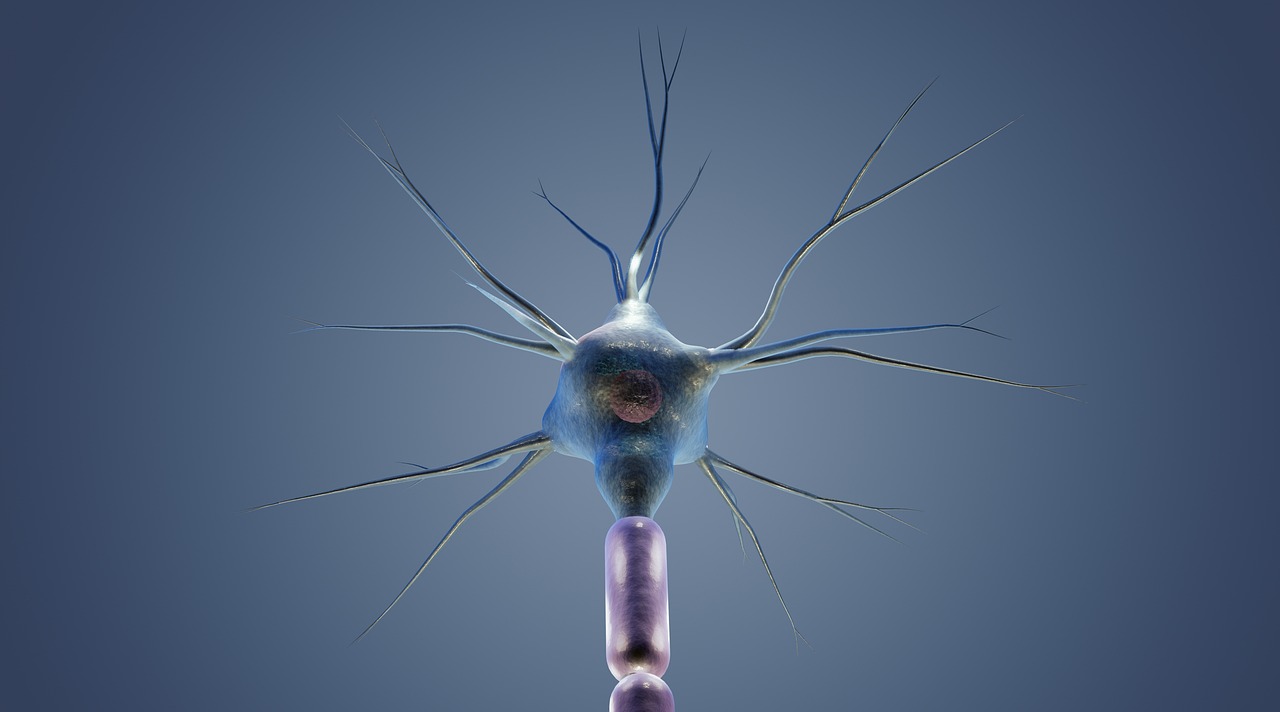
Natural Selection: A Philosophical Perspective
The concept of natural selection is not just a biological mechanism; it serves as a profound philosophical lens through which we can examine the very fabric of existence. At its core, natural selection explains how species evolve over time through variations that enhance survival and reproduction. But, what does this mean for our understanding of life, morality, and progress? This intersection of biology and philosophy invites us to ponder deeper questions about the nature of existence itself.
Consider this: if we are products of a process driven by random mutations and environmental pressures, does that imply that life is inherently chaotic? Or is there an underlying order to the randomness? The philosophical implications of natural selection challenge us to rethink our place in the universe. Are we merely the byproducts of chance, or do we possess agency in shaping our destinies? This duality between determinism and free will becomes a central theme in discussions about evolution.
Furthermore, natural selection raises ethical questions that resonate with our societal values. For instance, when we apply the concept of "survival of the fittest" to human interactions, we often stray into dangerous territory. The misinterpretation of this phrase has led to social Darwinism, where the idea of competition is used to justify inequality and oppression. This misuse prompts us to ask: should we embrace competition at the expense of compassion? Or can we find a balance that honors both our biological instincts and our moral obligations to one another?
In exploring these questions, we must also consider how natural selection impacts our understanding of progress. The notion that evolution is a linear path towards complexity and perfection is a misconception. Instead, evolution is a branching tree of life, where adaptation is key, not a predetermined goal. This perspective invites us to redefine what progress means in a societal context. Are we progressing as a species if we prioritize technological advancement over ecological sustainability? These philosophical inquiries challenge us to align our actions with a deeper understanding of our evolutionary heritage.
To illustrate these concepts, let’s consider how different philosophies interpret the implications of natural selection:
| Philosophical Perspective | Implication of Natural Selection |
|---|---|
| Determinism | Life outcomes are pre-determined by genetic and environmental factors. |
| Existentialism | Individuals create their own meaning in a chaotic world influenced by chance. |
| Utilitarianism | Actions are judged based on their consequences for the greatest number. |
| Ethical Naturalism | Moral values are derived from our understanding of human nature and evolution. |
In conclusion, the philosophical implications of natural selection extend far beyond biology. They compel us to engage in a dialogue about our values, ethics, and the meaning of progress in a world shaped by both chance and necessity. As we navigate these complex ideas, we must remain vigilant and reflective, ensuring that our understanding of evolution informs our actions in a way that promotes not only survival but also a flourishing society.
- What is natural selection? Natural selection is the process by which organisms better adapted to their environment tend to survive and produce more offspring.
- How does natural selection relate to ethics? Natural selection raises questions about morality and societal values, particularly regarding competition and cooperation among humans.
- Can natural selection influence human behavior? Yes, our evolutionary background can shape behaviors, but cultural and social factors also play significant roles.
- Is evolution a linear process? No, evolution is not linear; it is a complex process with multiple branches and adaptations.

Survival of the Fittest: Misinterpretations
The phrase “survival of the fittest” is often bandied about in discussions of Darwinian theory, but its meaning has been distorted over time. Originally coined by philosopher Herbert Spencer, this term was meant to convey that those best adapted to their environment are the ones who survive and reproduce. However, in popular culture, it has been misinterpreted to suggest a brutal competition where only the strongest prevail, leading to some rather dangerous implications for human society.
When we hear “survival of the fittest,” we might picture a dog-eat-dog world, where the strongest and most ruthless individuals rise to the top, while the weak are left behind. This interpretation has fueled ideologies such as social Darwinism, which misapplies evolutionary concepts to justify social inequality and even imperialism. Instead of recognizing the complexities of cooperation and adaptation, this view promotes a simplistic and often harmful narrative about human interactions.
In reality, the natural world is far more nuanced. For instance, many species thrive not through sheer strength but through cooperation, mutual aid, and social bonds. Take the example of wolves: they hunt in packs, relying on teamwork to secure their meals. This highlights that adaptability is not solely about individual prowess but also about how well organisms can work together in their environments.
Moreover, the idea of “fittest” does not always equate to physical strength. Fitness in evolutionary terms encompasses a variety of traits, including reproductive success, the ability to find food, and resistance to disease. Hence, a small, seemingly weak organism might be incredibly fit if it can survive and reproduce effectively in its environment. This brings us to the crux of the misinterpretation: the oversimplification of Darwin’s ideas into a narrative that glorifies competition at the expense of cooperation.
As we unpack the misinterpretations surrounding “survival of the fittest,” it’s crucial to recognize the broader implications this has on our moral and ethical frameworks. If we accept a skewed version of Darwinian theory, we might justify neglecting the most vulnerable members of our society. This raises profound questions: Should we embrace a worldview that prioritizes competition over compassion? Or can we find a balance that respects the complexities of both human and natural ecosystems?
In conclusion, while “survival of the fittest” has become a catchphrase for justifying a range of social policies and behaviors, a deeper understanding of Darwin’s work reveals a more intricate picture of life’s tapestry. Recognizing the importance of both competition and cooperation can help us foster a more compassionate society, one that values every individual’s role in the ecosystem—human or otherwise.
- What does "survival of the fittest" really mean? - It refers to the idea that organisms best adapted to their environment are more likely to survive and reproduce.
- How has this phrase been misused? - It has been used to justify social inequalities and competition, ignoring the role of cooperation in evolution.
- Can cooperation be considered a form of fitness? - Absolutely! Many species thrive through teamwork and social bonds, showing that fitness is not just about individual strength.
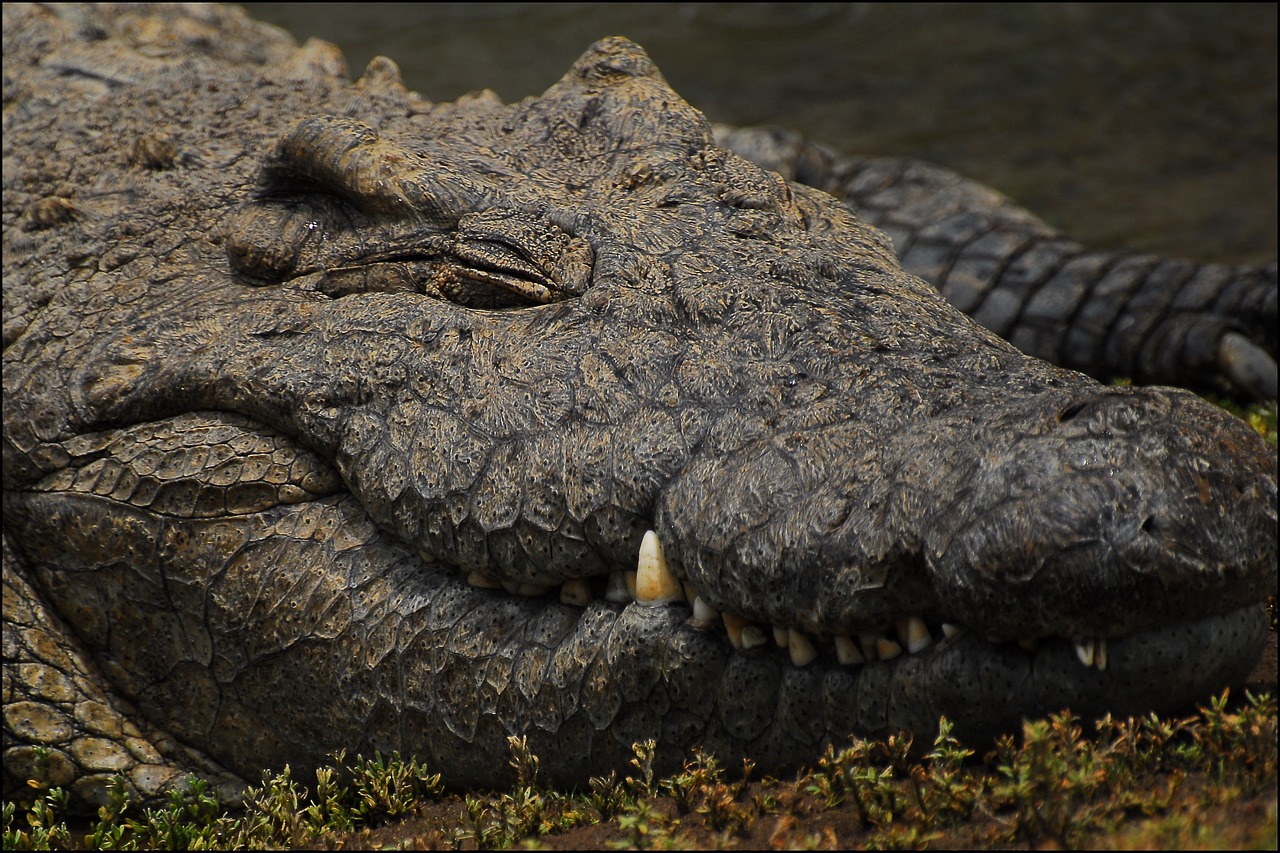
survival of the fittest
The phrase is often thrown around in discussions about evolution, but its meaning has been twisted and misapplied in various societal contexts. Originally coined by the philosopher Herbert Spencer and later associated with Darwin's theories, it implies that only those best adapted to their environment will survive and reproduce. However, this idea can lead to dangerous misconceptions when applied to human society. For instance, it can be misinterpreted to justify social inequalities or even unethical practices under the guise of "natural" selection.
In reality, the concept of survival in nature is far more nuanced. It isn’t merely about being the strongest or the most aggressive; it's about adaptation. Adaptation can take many forms, including cooperation, social structures, and the ability to thrive in diverse environments. For example, consider the way certain species of birds have developed unique mating calls that help them attract mates. This adaptation isn't about brute strength; it's about finesse and communication. Thus, the phrase can mislead us into oversimplifying the complex dynamics of survival.
Moreover, applying this concept to human society raises ethical questions. If we were to accept a strict interpretation of "survival of the fittest," it could lead to a justification for neglecting the vulnerable among us. Such a viewpoint can fuel harmful ideologies, such as social Darwinism, which misapplies biological concepts to justify social policies or discrimination. This misinterpretation can create a divide where compassion and empathy are seen as weaknesses rather than strengths.
To truly understand the implications of Darwin's work, we must recognize that evolution is not a race but a complex interplay of chance, environment, and adaptation. The survival of a species often hinges on its ability to work together, share resources, and adapt to changing conditions, rather than simply outcompeting others. In this light, the phrase "survival of the fittest" becomes a misnomer, as it overlooks the collaborative aspects of life that are crucial for survival.
In summary, while the concept of survival of the fittest is rooted in Darwinian theory, its application in social contexts must be approached with caution. By understanding the true nature of adaptation and survival, we can foster a more compassionate society that values cooperation and supports the vulnerable rather than dismissing them as unfit. This understanding not only enriches our grasp of evolution but also informs our ethical responsibilities as a society.
- What does "survival of the fittest" really mean?
It refers to the idea that organisms best adapted to their environment are more likely to survive and reproduce, but it is often misinterpreted to mean that only the strongest survive.
- How has this concept been misused in society?
It has been used to justify social inequalities and unethical practices, leading to ideologies like social Darwinism.
- What are the ethical implications of misinterpreting this phrase?
Misinterpretation can lead to a lack of compassion for the vulnerable, promoting harmful social policies that neglect those in need.
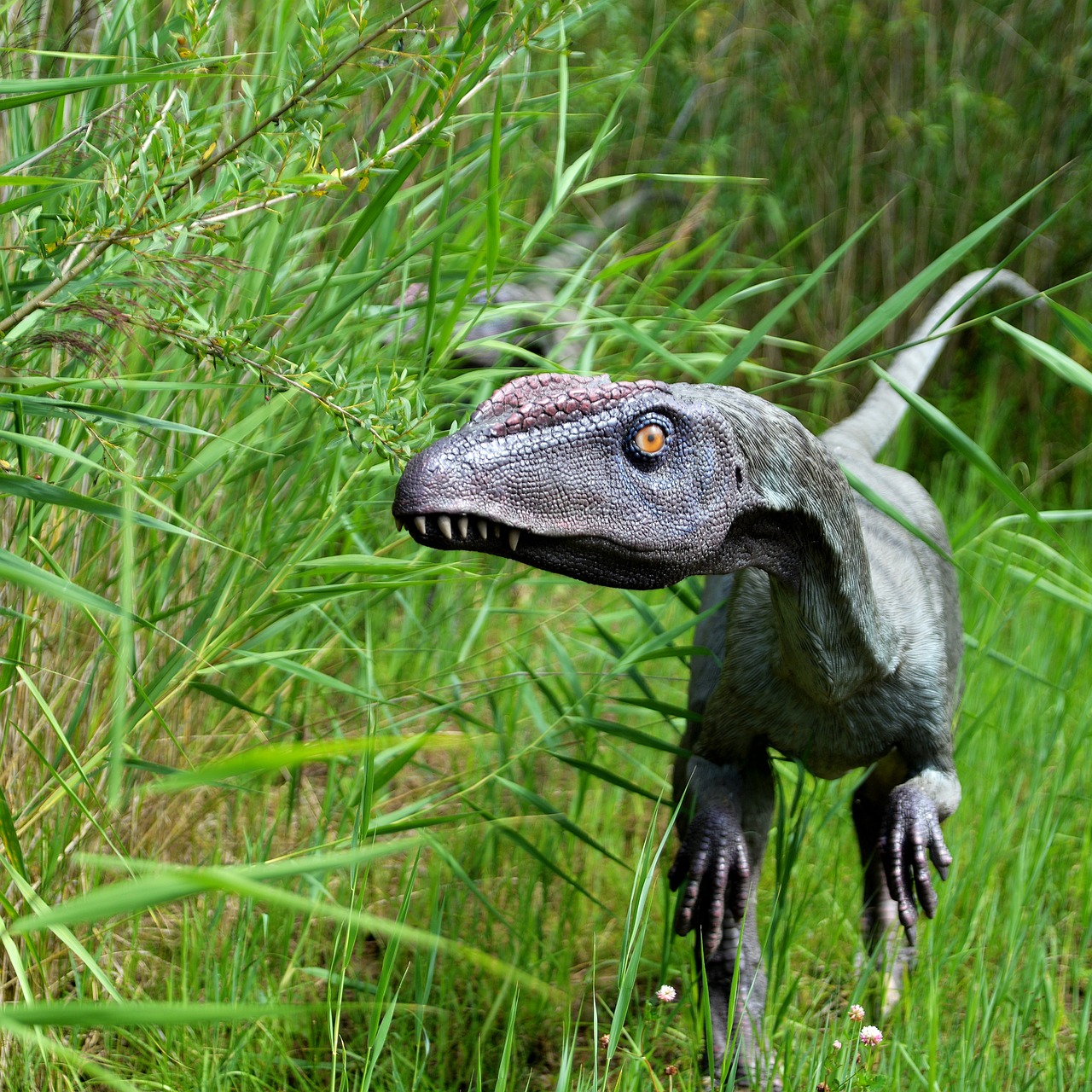
invites scrutiny regarding its implications for human society and ethics, leading to debates about social Darwinism.
Darwin's seminal work, The Origin of Species, revolutionized biology and philosophy, challenging traditional views on creation and prompting profound discussions about the nature of life and existence.
The concept of natural selection not only explains biological diversity but also raises questions about survival, morality, and the meaning of progress in the natural world.
Often misused in social contexts, the phrase survival of the fittest invites scrutiny regarding its implications for human society and ethics, leading to debates about social Darwinism.
When we hear "survival of the fittest," it conjures images of ruthless competition, where only the strongest prevail. But is this really what Darwin meant? The truth is, this phrase has been appropriated in ways that distort its original intent. In social Darwinism, the idea is twisted to justify inequality and social stratification, suggesting that certain groups are inherently superior. This interpretation raises profound ethical questions: Should we really apply biological concepts to justify social policies? Are we merely pawns in a game of natural selection, or do we have the power to shape our own destinies?
Moreover, the implications of social Darwinism can lead to dangerous ideologies. Historically, these ideas have been used to support eugenics, racism, and imperialism, promoting the notion that some lives are worth more than others. This misuse of Darwin's ideas forces us to confront uncomfortable truths about our society and the moral frameworks we adopt. It challenges us to ask: What does it mean to be 'fit' in a social context? Is it merely about strength and power, or should we consider compassion, cooperation, and community?
Examining the ethical ramifications of evolutionary theory reveals tensions between scientific understanding and moral philosophy, challenging us to reconsider our values in light of Darwinian insights.
Darwinian principles have influenced contemporary ethical discussions, especially in areas like bioethics and environmental responsibility, prompting a re-evaluation of human relationships with nature.
Darwin's acknowledgment of chance in evolution invites philosophical inquiry into determinism versus free will, challenging our understanding of fate and randomness in the development of life.
Darwin's work has significantly shaped the philosophy of science, particularly in discussions surrounding scientific methodology, hypothesis testing, and the nature of scientific theories.
Darwin's empirical approach to studying nature emphasizes observation and evidence, influencing not only biology but also broader philosophical discussions about knowledge and belief.
Despite its impact, Darwin's philosophy faces critiques from various perspectives, prompting ongoing debates about the limitations of his theories and their implications for understanding life.
- What is the main idea behind Darwin's theory of evolution?
Darwin's theory of evolution centers on the concept of natural selection, where organisms better adapted to their environment tend to survive and reproduce, passing on advantageous traits to future generations. - How has Darwin's work influenced modern science?
Darwin's work laid the foundation for modern biology, influencing various fields such as genetics, ecology, and anthropology, and promoting a scientific understanding of life that is based on evidence and observation. - What are the ethical implications of applying Darwin's theories to society?
The application of Darwin's theories to social contexts can lead to misinterpretations, such as social Darwinism, which can justify inequality and discrimination, raising serious ethical concerns about how we view human value and morality.

Ethical Considerations in Evolutionary Theory
The exploration of ethical considerations in evolutionary theory is not merely an academic exercise; it compels us to confront profound questions about our place in the world and our responsibilities to one another and the environment. As we delve into Darwin's insights, we find ourselves grappling with the implications of natural selection and its influence on our moral compass. The intersection of science and ethics can often appear as a complex web, where the threads of biology, philosophy, and morality intertwine.
At the heart of this discussion lies the challenge of reconciling our understanding of evolution with our ethical frameworks. How do we align the idea of survival of the fittest with concepts of compassion and social justice? This tension raises critical questions about the nature of morality itself. Are our ethical principles merely products of evolutionary adaptations, or do they transcend biological imperatives? For instance, consider the following points:
- Human Rights: If we view humans as products of evolution, does that undermine the concept of inherent human rights? Or can we argue that empathy and cooperation, which have evolved as advantageous traits, form the basis of our moral obligations to one another?
- Environmental Ethics: As we recognize our evolutionary connection to nature, how should this inform our treatment of the environment? Should we prioritize conservation efforts based on our evolutionary history, or is there a moral imperative to protect ecosystems regardless of their utility to humans?
- Social Darwinism: The misuse of Darwinian principles in social contexts has led to harmful ideologies. How do we safeguard against the misinterpretation of "survival of the fittest" as a justification for inequality and discrimination?
These considerations highlight the necessity of a nuanced approach to ethics in light of evolutionary theory. Engaging with these questions not only enriches our understanding of ethics but also challenges us to evolve our moral frameworks. The dialogue between science and ethics is ongoing, and as we continue to uncover the complexities of our evolutionary past, we must remain vigilant about the ethical implications of our findings.
In modern discussions, the application of Darwinian thought extends into various fields such as bioethics and environmental responsibility. For example, in bioethics, the principles of natural selection can inform debates on genetic engineering and reproductive technologies. Should we intervene in the evolutionary process, or does this play God? The ethical ramifications are vast and demand careful consideration.
Ultimately, the ethical considerations stemming from evolutionary theory challenge us to reflect on our values and responsibilities. As we navigate this intricate landscape, it becomes clear that our understanding of evolution is not just about the past; it shapes our future actions and societal norms. We must strive to cultivate an ethical perspective that honors our evolutionary heritage while promoting a just and compassionate society.

Application of Darwinian Thought in Modern Ethics
Darwinian thought has permeated various aspects of modern ethics, reshaping our understanding of human interactions with each other and the environment. At its core, the principles of evolution challenge us to consider our ethical responsibilities not just as isolated beings but as part of a broader ecological and social network. This interconnectedness prompts a re-evaluation of our moral frameworks, urging us to adopt a more holistic view of ethics that encompasses both human and non-human life.
One significant area where Darwinian thought has made a profound impact is in the field of bioethics. The principles of natural selection and adaptation encourage us to consider the implications of our medical and technological advancements on the natural world. For instance, as we develop new genetic technologies, we must ask ourselves: What are the ethical implications of altering the genetic makeup of living organisms? This question is not only scientific but deeply moral, as it forces us to confront the potential consequences of our actions on future generations and the environment.
Moreover, Darwinian insights have also influenced our understanding of environmental ethics. The recognition that humans are a part of the natural world, rather than separate from it, fosters a sense of responsibility towards the planet. As we grapple with issues like climate change and biodiversity loss, Darwinian thought encourages us to reflect on our role in these processes. Are we acting as stewards of the earth, or are we merely exploiting its resources? This inquiry leads to a more sustainable approach to living, where conservation and respect for all forms of life become paramount.
Furthermore, Darwin's emphasis on community and cooperation in evolution highlights the importance of social ethics. In human societies, the survival of the fittest is often misinterpreted as a justification for inequality and exploitation. However, a more nuanced understanding reveals that cooperation and altruism are also vital for survival. This realization encourages us to cultivate empathy and solidarity within our communities, fostering a culture that values mutual support over competition.
In summary, the application of Darwinian thought in modern ethics invites us to reconsider our values and responsibilities. It challenges us to embrace a more inclusive and interconnected ethical framework that acknowledges our impact on both human and non-human life. As we navigate the complexities of contemporary moral dilemmas, the insights gleaned from Darwin's theories can guide us toward more thoughtful and compassionate decisions.
- What is the significance of Darwinian thought in ethics?
Darwinian thought encourages a holistic view of ethics that considers our interconnectedness with all forms of life, leading to more responsible and sustainable decision-making.
- How does Darwinian theory influence bioethics?
The principles of evolution challenge us to consider the ethical implications of medical and technological advancements, particularly regarding genetic modifications and their consequences.
- What role does cooperation play in Darwinian ethics?
Darwin's insights reveal that cooperation and altruism are essential for survival, prompting us to foster empathy and solidarity within our communities.

The Role of Chance in Evolution
When we think about evolution, the first thing that might come to mind is the grand tapestry of life, woven with intricate threads of adaptation and survival. But what if I told you that a significant part of this tapestry is made up of pure chance? Yes, chance plays a crucial role in the evolutionary process, and this concept invites us to ponder some profound philosophical questions. It challenges our understanding of determinism and free will, urging us to consider how much control we really have over our destiny.
Darwin himself acknowledged the unpredictable nature of evolution. He understood that while natural selection is a driving force, the very changes that lead to new species often arise from random mutations. These mutations can be likened to throwing dice in a game of chance; sometimes you roll a six, and sometimes you don’t. The randomness of these genetic changes can lead to traits that may or may not confer a survival advantage. Imagine a world where a butterfly’s wing color shifts purely by chance—this could either help it blend into its environment or make it an easy target for predators. In this way, chance is not just a minor player; it is a significant factor in the evolutionary game.
Moreover, the interplay between chance and necessity raises questions about the very fabric of existence. Are we merely products of random events, or is there a greater purpose behind our evolution? This dilemma can be likened to a philosophical debate between two schools of thought: one that sees life as a series of fortunate accidents and another that believes in a predetermined path shaped by the forces of nature. The truth may lie somewhere in between, but it certainly makes for an intriguing discussion!
To better understand this relationship, let's consider a few key points:
- Random Mutations: These are the building blocks of genetic diversity. While many mutations are neutral or harmful, some can provide advantages that lead to evolutionary success.
- Environmental Factors: The environment can change suddenly and unpredictably, influencing which traits become beneficial. Think of a sudden climate shift; species that cannot adapt quickly enough may face extinction.
- Extinction Events: Throughout history, major extinction events have reshaped life on Earth. These events are often random and catastrophic, leading to the rise of new species in the aftermath.
In light of these elements, it becomes clear that chance and randomness are not merely background players in the story of evolution; they are integral to the narrative. They remind us that life is unpredictable and that our existence may hinge on events beyond our control. This realization can be both humbling and liberating, as it invites us to embrace the uncertainty of life while recognizing the beauty in its unpredictability.
As we navigate through the complexities of evolution, we must also consider how these ideas intersect with our understanding of morality and ethics. If much of our existence is shaped by chance, what does that mean for our sense of responsibility? Are we accountable for our actions, or are we simply products of our environment and genetic lottery? These questions can lead to rich discussions about free will, determinism, and the nature of human experience.
- What role does chance play in evolution?
Chance introduces random mutations that can lead to new traits, influencing the evolutionary process alongside natural selection. - Does chance mean that evolution is purely random?
No, while chance is a factor, natural selection acts on the variations produced by random mutations, guiding the evolutionary process. - How does understanding chance in evolution affect our view of free will?
This understanding challenges the notion of free will, prompting discussions about determinism and the extent to which our choices are influenced by random events.

Darwin and the Philosophy of Science
When we think about Charles Darwin, we often picture a man aboard the HMS Beagle, meticulously observing the diverse life forms of the Galápagos Islands. However, his contributions extend far beyond mere observations; they delve deep into the realm of philosophy of science. Darwin's work has played a pivotal role in shaping how we understand scientific inquiry, methodology, and the very nature of scientific theories. His ideas challenge us to reconsider what we deem as knowledge and how we arrive at it.
At the heart of Darwin's philosophy lies an emphasis on empiricism. This approach prioritizes observation and evidence above all else, marking a significant departure from speculative reasoning that dominated earlier scientific thought. Darwin's meticulous documentation of species variation and adaptation serves as a prime example of how empirical data can lead to profound theoretical insights. By grounding his theories in observable phenomena, he not only transformed biology but also influenced broader philosophical discussions about knowledge and belief.
Consider this: in a world where knowledge is often debated and contested, Darwin's insistence on evidence-based conclusions provides a solid foundation for scientific discourse. His work encourages scientists to ask critical questions, such as:
- What evidence supports this theory?
- How can we test our hypotheses?
- What observations can lead us to new understandings?
Yet, despite the robust framework that Darwin established, his philosophy is not without its critiques. Some argue that while Darwin's ideas have significantly contributed to the philosophy of science, they also possess inherent limitations. For instance, his focus on natural selection as the primary mechanism of evolution has led some to overlook other factors such as genetic drift and environmental influences. This has prompted ongoing debates among scientists and philosophers alike, questioning whether Darwin's theories can fully encapsulate the complexity of life's development.
Furthermore, Darwin's work invites us to explore the interplay between science and society. The implications of his theories extend into ethical discussions, particularly in how we view humanity's place in the natural world. For example, if we are merely products of evolution, what does that say about our moral responsibilities? This intersection of science and ethics is a crucial area of exploration, challenging us to think deeply about our actions and their consequences.
In summary, Darwin's influence on the philosophy of science is profound and multifaceted. His commitment to empirical evidence reshaped scientific inquiry, while his theories continue to spark debates that bridge science, ethics, and society. As we navigate through the complexities of modern science, we must remember the foundational principles that Darwin established, ensuring that our quest for knowledge remains rooted in observation and inquiry.
- What is the main contribution of Darwin to the philosophy of science?
Darwin emphasized the importance of empirical evidence and observation in scientific inquiry, which reshaped how we approach scientific theories. - How did Darwin's ideas influence modern ethical discussions?
His theories raise questions about humanity's place in nature and our moral responsibilities, prompting deeper ethical reflections in various fields. - What critiques exist regarding Darwin's philosophy?
Some argue that focusing solely on natural selection overlooks other vital mechanisms of evolution, leading to ongoing debates about the completeness of his theories.

Empiricism and Its Influence on Darwinian Thought
When we dive into the world of Darwinian thought, we quickly realize that one of the cornerstones of Charles Darwin's approach was empiricism. This method is all about relying on observation and experience rather than just theoretical speculation. Imagine trying to navigate through a dense fog without a compass; that’s what relying solely on theories would be like. Darwin, however, chose to illuminate his path with the bright light of evidence gathered from the natural world. His meticulous observations during his voyage on the HMS Beagle allowed him to collect data that would challenge existing notions of life and evolution.
Empiricism, at its core, is the idea that knowledge comes primarily from sensory experience. For Darwin, this meant that he had to observe plants, animals, and their environments in detail. His famous finches from the Galápagos Islands are a prime example of this. By examining their beaks, which varied based on their feeding habits, Darwin was able to draw conclusions about adaptation and natural selection. This hands-on approach not only shaped his theories but also set a precedent for how scientific inquiry should be conducted. It was a revolutionary shift from the abstract reasoning that had dominated scientific thought prior to his time.
Furthermore, Darwin's empirical observations led him to develop a systematic method for testing hypotheses. He didn’t just throw ideas against the wall to see what would stick; he carefully considered evidence, asked questions, and sought answers through rigorous study. This methodology has had a lasting impact on the philosophy of science, as it emphasizes the importance of evidence-based reasoning. Today, we can see how this empirical foundation has paved the way for modern scientific practices, where evidence and observation are paramount.
However, it's important to note that Darwin's empiricism wasn't without its challenges. Critics have pointed out that while Darwin relied heavily on observation, he also had to contend with the limitations of his time. For instance, the tools and technologies available for studying genetics and heredity were rudimentary compared to what we have today. This led to debates about the completeness of his theories. Nonetheless, the essence of Darwinian thought remains rooted in an empirical framework that encourages continuous inquiry and skepticism.
In conclusion, the influence of empiricism on Darwinian thought cannot be overstated. It has not only shaped the way we understand evolution but has also influenced the broader landscape of scientific inquiry. By grounding his theories in observation and evidence, Darwin opened the door for future scientists to explore the mysteries of life with a critical eye. His legacy reminds us that in the quest for knowledge, we must always be willing to look closely at the world around us and question what we think we know.
- What is empiricism? Empiricism is a philosophical approach that emphasizes knowledge gained through sensory experience and observation.
- How did Darwin use empiricism in his work? Darwin relied on detailed observations of nature, especially during his voyage on the HMS Beagle, to formulate his theories on evolution.
- What is the significance of Darwin's empirical approach? His empirical approach laid the groundwork for modern scientific methods, emphasizing the importance of evidence and observation in forming theories.
- What challenges did Darwin face with his empirical observations? Darwin faced limitations in the scientific tools of his time, which sometimes restricted his ability to fully understand genetic inheritance.
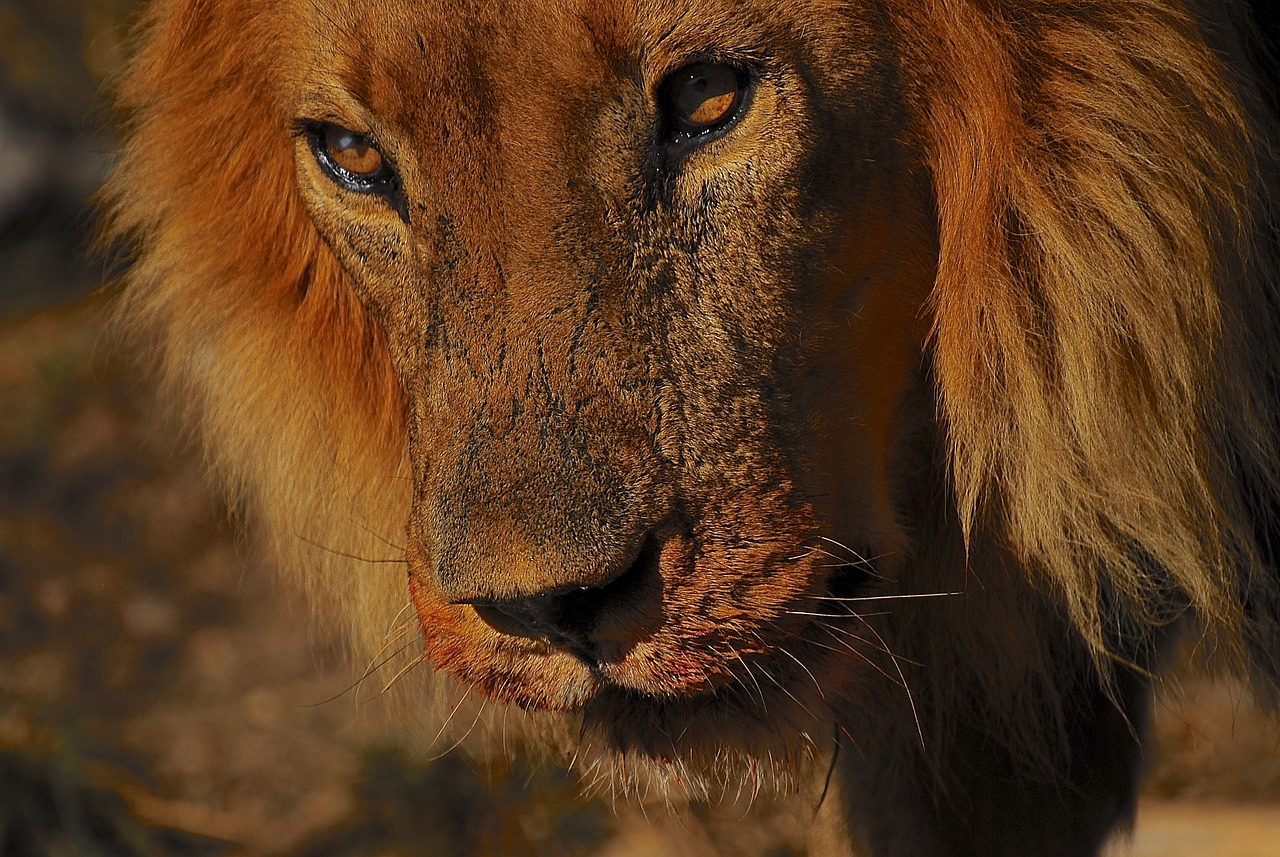
Critiques and Counterarguments to Darwin's Philosophy
Despite the monumental impact of Darwin's theories on our understanding of life, there are notable critiques and counterarguments that challenge his philosophy. One of the primary criticisms comes from the realm of religious belief, where many argue that Darwin's theory of evolution contradicts the creationist view outlined in various religious texts. This has led to heated debates in educational systems, particularly in the United States, where the teaching of evolution is often met with resistance from those who advocate for a creationist perspective.
Furthermore, some scientists and philosophers contend that Darwin's concept of natural selection does not fully account for the complexities of evolutionary processes. For instance, the role of genetic drift—a mechanism of evolution that involves random changes in allele frequencies—has been emphasized by critics as a significant factor that Darwin's original theory did not adequately address. This has led to the development of the modern synthesis, which incorporates genetics into Darwinian evolution, suggesting that while Darwin laid the groundwork, the full picture of evolution is more intricate than he proposed.
Another area of critique is the interpretation of the phrase “survival of the fittest”. Critics argue that this phrase has been misinterpreted and misapplied in social contexts, leading to the rise of social Darwinism. This ideology has been used to justify various forms of inequality and discrimination, suggesting that some groups are inherently superior to others based on their evolutionary fitness. This misuse has sparked ethical debates about the implications of applying biological concepts to human society.
In addition to these critiques, there are philosophical arguments regarding the implications of Darwin's theories for our understanding of free will and determinism. If our behaviors and traits are largely shaped by evolutionary pressures, to what extent are we truly autonomous in our choices? This question invites further philosophical inquiry and challenges the notion of human agency, leading to discussions about the implications of evolutionary biology on moral responsibility.
| Critique | Description |
|---|---|
| Religious Opposition | Contradiction with creationist beliefs, leading to debates in educational systems. |
| Genetic Drift | Random changes in allele frequencies that Darwin did not adequately address. |
| Misinterpretation of "Survival of the Fittest" | Justification of inequality and discrimination through social Darwinism. |
| Free Will vs. Determinism | Challenges the notion of human autonomy and moral responsibility. |
These critiques highlight the ongoing conversations surrounding Darwin's work and the way it continues to influence both science and philosophy. While Darwin's contributions are undeniably significant, the debates they inspire remind us that science is a dynamic field, constantly evolving and adapting to new discoveries and ideas. The richness of these discussions not only deepens our understanding of evolution but also challenges us to think critically about the implications of scientific theories in our lives.
- What is the main critique of Darwin's theory of evolution? Many critiques focus on its perceived contradiction with religious beliefs and the inadequacy of natural selection to explain all aspects of evolution.
- How has Darwin's theory influenced modern science? Darwin's work laid the foundation for evolutionary biology and has influenced various scientific disciplines, including genetics and ecology.
- What is social Darwinism and why is it controversial? Social Darwinism is the application of Darwin's ideas to social policy, often used to justify inequality; it is controversial due to its ethical implications.
- How do genetic drift and natural selection differ? While natural selection involves advantageous traits becoming more common, genetic drift refers to random changes in a population's gene pool that can lead to significant evolutionary changes.
Frequently Asked Questions
- What is the main idea behind Darwin's theory of evolution?
Darwin's theory of evolution primarily revolves around the concept of natural selection, which suggests that organisms better adapted to their environment tend to survive and produce more offspring. This process leads to gradual changes in species over time, fundamentally altering our understanding of biological diversity.
- How did 'The Origin of Species' impact philosophical thought?
'The Origin of Species' revolutionized not just biology but also philosophy by challenging traditional creationist views. It prompted deep discussions about existence, the meaning of life, and our place in the natural world, leading to a shift in how humanity perceives itself in relation to nature.
- What does 'survival of the fittest' really mean?
While often misinterpreted in social contexts, 'survival of the fittest' refers to the idea that those best suited to their environment are more likely to survive and reproduce. It raises important ethical questions about competition and cooperation in human society, often leading to debates about social Darwinism.
- What are the ethical implications of Darwinian theory?
Darwin's insights challenge us to reconsider our moral philosophies. They reveal tensions between scientific understanding and ethical considerations, pushing us to reflect on our values, especially in contexts like bioethics and our responsibilities toward the environment.
- How does chance factor into evolution?
Darwin acknowledged that chance plays a significant role in evolution, which opens up discussions about determinism versus free will. This perspective invites us to think deeply about the randomness involved in life's development and how it shapes our understanding of fate.
- What influence did Darwin have on the philosophy of science?
Darwin's empirical approach to studying nature significantly impacted the philosophy of science, particularly in discussions around scientific methodology and hypothesis testing. His work emphasizes the importance of observation and evidence in forming scientific theories.
- Are there critiques of Darwin's philosophy?
Yes, Darwin's philosophy faces various critiques that question the limitations of his theories. These critiques fuel ongoing debates about the implications of his work for understanding life, prompting further inquiry into the complexities of evolution and its philosophical ramifications.



















